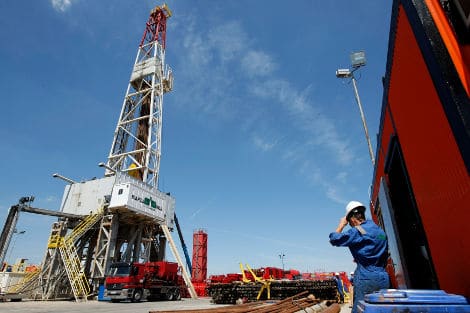Late last summer, Québec’s Liberal government announced a provincial study and a series of public hearings on hydraulic fracturing, the controversial natural gas industry practice under increasingly intense review following a bombshell New York Times investigation into fracking threats to drinking water and public health.
This week, the commission that the Quebec government set up to review fracking and shale development, called the Bureau d’audiences publiques sur l’environnement (BAPE), submitted its far-reaching report on the future of shale gas development in Québec, but it won’t be available for public review until Pierre Arcand, Quebec’s Minister of Sustainable Development, Environment and Parks, releases it, which could be anytime within the next 60 days.
Since the BAPE commission began its review of the “harmonious development” of the shale gas industry, much has changed in the minds of politicians and the public. Not long after the consultation announcement, the documentary Gasland revealed the shocking environmental damage and health risks posed by the hydraulic fracturing drilling method. Ever since the film’s release, opposition to shale gas development has grown across North America, as well as in Europe where shale gas deposits are just being discovered.
And now, with Quebec due to decide whether or not to allow fracking to continue, there is ample reason for concern. In the course of examining each of the province’s 31 shale gas wells (half of which employ hydraulic fracking) – inspectors have found leaks in a whopping 19.
Public support for fracking has dropped off precipitously across the province. A recent survey of 1,000 people conducted by the daily paper Le Devoir found that 55% of Quebecers are against shale-gas drilling, up from 37% in September. Moreover, among those who have followed the issue closely, opposition is running at 75%. More than 128,000 people have signed an online petition calling on Liberal Premier Jean Charest to place a moratorium on shale gas development.
Premier Charest’s government, once a vociferous advocate for shale gas development, is muting its cheerleading of late and appears to understand the real threat posed by fracking. Minister Arcand admitted publicly last week that, “The industry is not in control of the situation” and that he is “extremely concerned” about the impacts from shale gas development.
Importing natural gas from the western Canadian province of Alberta to meet approximately 13% of its energy needs, Québec’s Natural Resources Department estimates that there may be 40 billion cubic feet of shale gas reserves, which would be more than enough for Québec to meet its energy needs for the next 200 years, if the claims are legitimate. Of course, the province would need to continue to allow hydraulic fracturing, the primary technology enabling drillers to reach its shale gas deposits.
Coinciding with the BAPE’s report being released to Minister Arcand, the citizens coalition Maîtres chez nous 21è siècle released a parallel 123-page report [PDF available in French] Monday. After reviewing some 200 documents, Maîtres chez nous concluded that not only does shale gas development fail to meet Québec’s principles for sustainable development, but also that shale gas is dirty and runs contrary to the province’s climate change reduction targets and clean energy development goals.
Given the findings from the parallel report – and the rapidly growing public opposition to fracking – it is expected that regardless of the BAPE recommendations, the Charest government will be hard pressed to meaningfully pursue shale gas.
Stay tuned since the BAPE study will likely be made public sooner rather than later.
Subscribe to our newsletter
Stay up to date with DeSmog news and alerts







